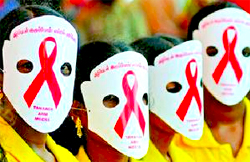New Delhi, April 7: The government continued to take steps to contain the spread of coronavirus including a strategy of cluster containment as the cases continued to rise and Tuesday saw single-day largest jump of 722 positive cases.
The total number of positive cases reached 4,789 on Tuesday, the 14th day of lockdown.
According to the latest update of the Health Ministry, there are 4,312 active cases, 352 persons have been cured or discharged (one migrated) and 124 have died.
Maharashtra has the largest number of positive cases at 868 and also accounts for the largest number of deaths at 48. Tamil Nadu has 621 confirmed cases.
Thirteen persons have died in Madhya Pradesh and the same number in Gujarat.
The 21-day lockdown was announced on March 24 by Prime Minister Narendra Modi.
At the regular media briefing at 4 pm, Lav Aggarwal, Joint Secretary in the Health Ministry, said that the government is adopting a strategy for cluster containment.
"This strategy is producing positive results, especially in Agra, Gautam Buddh Nagar, Pathanamthitta, Bhilwara and East Delhi," he said.
Aggarwal said that a recent study by the Indian Council of Medical Research (ICMR) has shown that a person infected with coronavirus can infect 406 others in just 30 days if he does not follow the lockdown and social distancing norms.
He said no decision has been taken on extending the lockdown and urged against any speculation.
He said latest technology was being used for management of COVID-19 and there was real-time tracking of ambulances.
The official said the dedicated facilities for COVID-19 are divided into three parts -- COVID Care Centre, Dedicated COVID Health Centre and Dedicated COVID Hospitals.
He said that COVID Care Centres were for treating mild, very mild and likely to be COVID-19 patients. Hostels, hotels, school, and stadium can be used for this. "We have asked states to map it with COVID Care Hospitals and COVID Health Centre so that patients can be shifted if needed," he said.
The official said that COVID Health Centres were for treating COVID-19 patients of clinically moderate level of seriousness. "For this, fully functional hospitals will be used. A dedicated block of a fully functional hospital can also be used for this. The hospitals must have beds with oxygen support," he said.
Aggarwal said that dedicated COVID Hospitals were meant for severe and critical cases and these must be fully-equipped with ICUs and ventilators.
New coronavirus cases were reported on Tuesday from several states including Maharashtra, Madhya Pradesh, West Bengal, and Tamil Nadu.
The Ministry of Environment, Forest and Climate Change has issued an advisory about containing coronavirus in national parks, sanctuaries and tiger reserves in view of the spread of COVID-19 and a report about tiger being infected in New York. The Central Zoo Authority has also advised zoos in India to remain on high alert.
Here's a quick read on the COVID-19 related updates
1. The Indian Railways has prepared 40,000 isolation beds in 2,500 coaches and this work is ongoing in 133 locations across the country.
2. Madhya Pradesh Chief Minister Shivraj Singh Chouhan said he was willing to extend the lockdown in the state after the completion of 21-day period to save lives.
3. The government is monitoring the movement of pharmaceuticals closely and the movement of pharmaceuticals through trucks has stabilised in the country.
4. Under the 'Lifeline Udan' initiative, 152 flights have transported over 200 tonnes of cargo till April 6.
5. According to ICMR, testing of 1,07,006 people has been carried out till date and 136 government labs and 59 private labs are conducting tests in the country.
6. The Home Ministry said that the status of essential goods and services was by and large satisfactory in the country. Home Minister Amit Shah has issued directives to the states to ensure there is no hoarding or black marketing in any corner of the country.
7. The number of corona positive cases in Uttar Pradesh has reached 314. Of these, 168 patients are connected to Tablighi Jamaat, state Chief Minister Yogi Adityanath said on Tuesday.
8. The government has lifted restrictions on export of 24 pharmaceutical ingredients and medicines made from them.
9. Union Defence Minister Rajnath Singh said the Group of Ministers had "an extensive discussion on the prevailing situation post the lockdown" in the country. They also appreciated the Cabinet's decision to cut MP's salary for a year.
10. Central Zoo Authority has advised zoos in the country to remain on highest alertness, watch animals on 24X7 basis, using CCTV for any abnormal behavior or symptoms.
 Coimbatore, Dec 1: Tamil Nadu, Andhra Pradesh, Telangana and Karnataka account for 3.6 lakh HIV cases, about 50% of the patients in the country. The southern states are also among the top four in the country, with Tamil Nadu alone having 80,685 HIV affected people of the total 7.7 lakh as on May 2014.
Coimbatore, Dec 1: Tamil Nadu, Andhra Pradesh, Telangana and Karnataka account for 3.6 lakh HIV cases, about 50% of the patients in the country. The southern states are also among the top four in the country, with Tamil Nadu alone having 80,685 HIV affected people of the total 7.7 lakh as on May 2014.




Comments
Add new comment